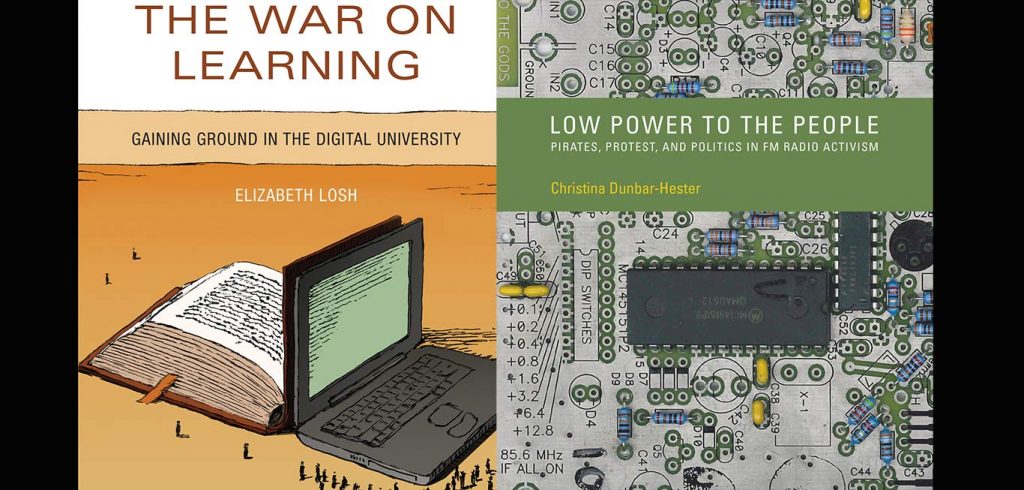Low-power radio stations and iPads represent the cutting edge of communication technology from very different eras, but books on technology from both eras were honored Oct. 26 by Fordham’s Donald McGannon Communication Research Center.
Two books, Low Power to the People (MIT Press, 2014), by Christina Dunbar-Hester and The War on Learning: Gaining Ground in the Digital University (MIT Press, 2014), by Elizabeth Losh co-received the Donald McGannon Award for Social and Ethical Relevance in Communication Technology Research.
The award carries with it a $2,000 prize that will be split among the winners. It is the first award issued under the center’s revised mission—to foster understanding of the ethical and social justice dimensions of media and communication technologies.
Previously, said Alice Marwick, PhD, director of the Gannon Center and assistant professor of communication and media studies, the center’s mission had focused on government policy.
“This new focus allows us to look at things like Anonymous, cyberbullying, the use of Yik Yak and Snapchat, and all these cutting edge research topics that are beyond just the policy aspect of communication research,” she said.
The two books chosen for the award exemplify that shift, Marwick said. She applauded Low Power author Christina Dunbar-Hester’s approach to writing about the practices of an activist organization focused on procuring lower-power FM licenses in the 2000s.
“She worked with all these activists and went to all these events where people are putting up a radio transmitter tower, or they’re putting together a workshop to teach people how to solder,” she said. “This kind of ethnographic approach to understanding technology is very much the cutting edge of communication scholarship.”
On the other end of the spectrum is The War on Learning, a critical look at the life cycles of education technologies like smart boards, which are promoted by administrators and technology companies, but not teachers. Rather than decrease inequality, they often exacerbate existing problems in education, she said.
Marwick said both books exemplify the kind of research that students will explore in a new digital technologies and emerging media major, scheduled to be available, pending state approval, through the Department of Communication and Media Studies in the fall of 2016.
“In both cases, you’re looking at books where ethics and social justice are front and center of the questions that are being asked, but the authors are doing it in ways that are more subtle and nuanced than saying that the FCC should incorporate this policy, or the government should fix this problem. Instead, they’re really looking at how these things play out in practice.”

